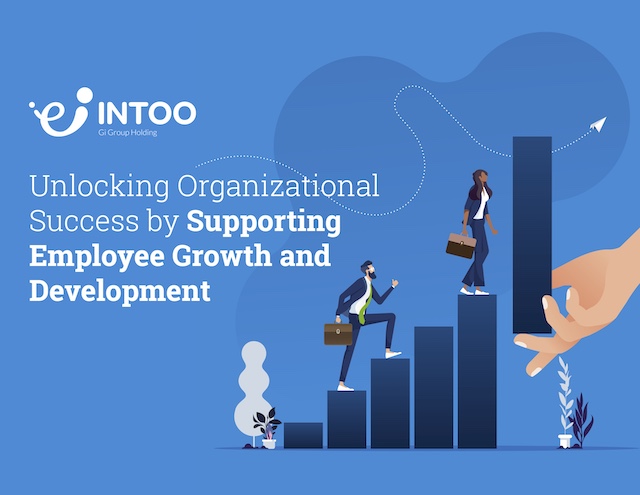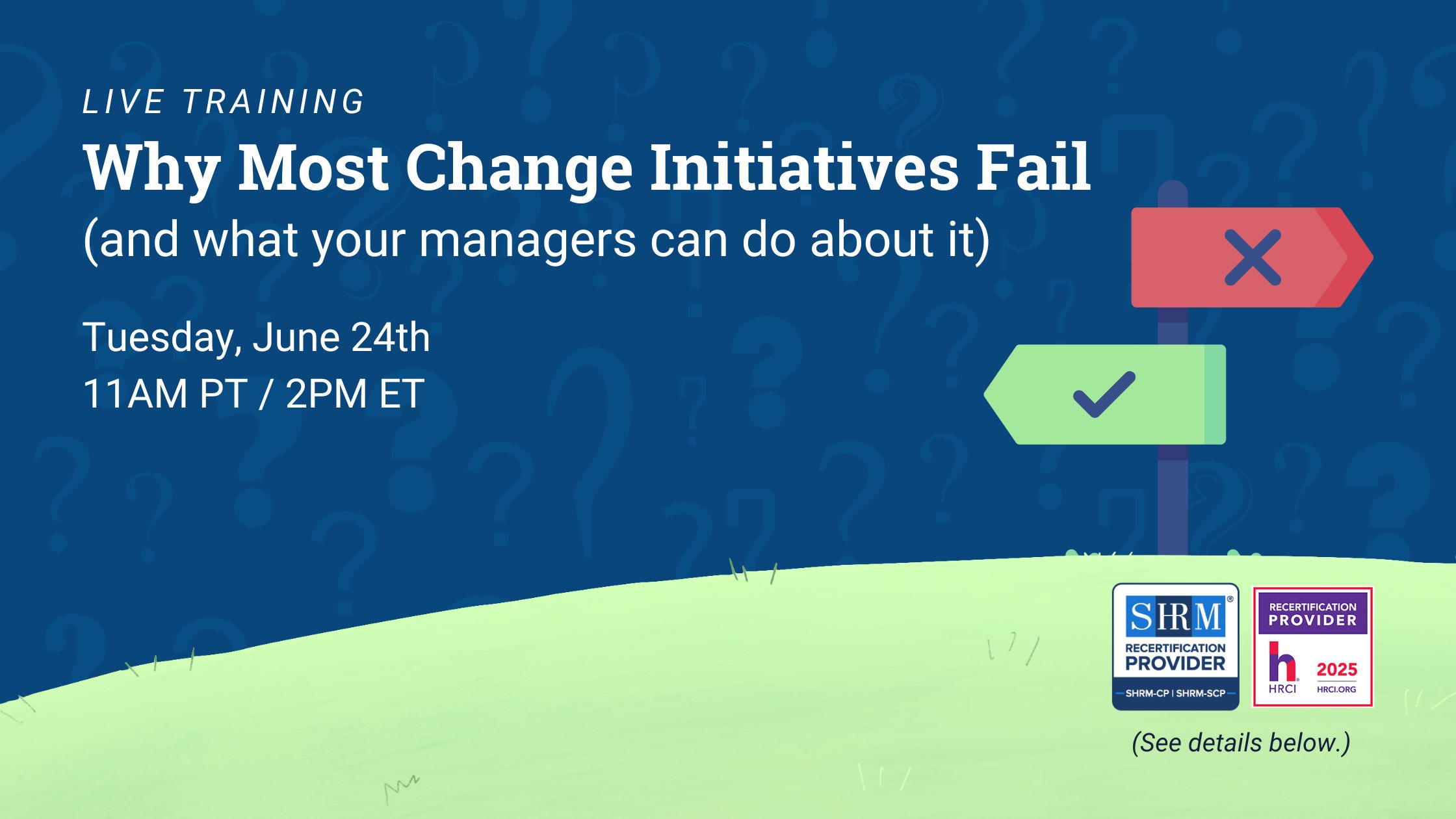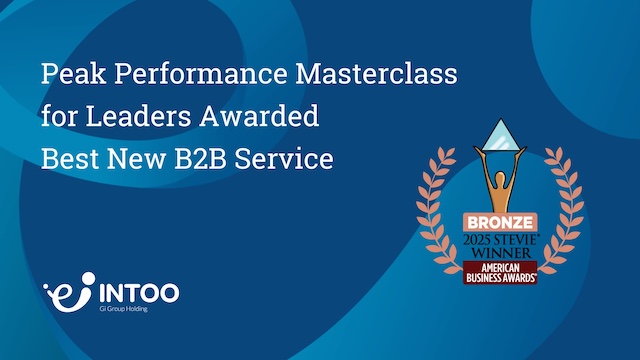INTOO, the career development and outplacement flagship for Gi Group Holding, a global leader in HR and talent solutions, today announced the publication of its Unlocking Organizational Success by Supporting Employee Growth and Development report: a summary of findings from a new survey that explores how support for career advancement—and the lack thereof—is impacting today’s workforce.
In partnership with research firm Workplace Intelligence, INTOO surveyed 800 HR leaders and 800 full-time employees. The report describes how many workers struggle to progress in their careers due to a lack of support from their employers. However, Gen Z—the fastest-growing employee demographic—feels particularly lost, even though these team members stand to benefit the most from learning & career development programs and opportunities.
Key findings include:
Many employees feel unsupported in their career development—and organizations might struggle to retain talent as a result:
- 63% say their employer cares more about their productivity than their career development
- 54% feel completely on their own at their organization when it comes to their career development
- 25% of employees—and an alarming 44% of Gen Z—say they’ll likely quit within the next 6 months because their company doesn’t support their career development.
Managers play a critical role in helping people advance their careers, but employees don’t feel they can rely on them:
- 46% of employees say their manager doesn’t know how to help them with their career development.
- Nearly half (47%) of Gen Z employees say they get better career advice from Artificial Intelligence, including ChatGPT, than they get from their manager.
- Workers who feel at least “somewhat” supported by their manager were nearly 7X more likely to say they made a lot of career progress last year compared to those who say they get little or no support from their manager.
Learning & development programs offer important benefits to workers and companies alike, but most aren’t hitting the mark:
- Just 22% of employees and 41% of HR leaders say their company’s L&D opportunities and benefits are “excellent.”
- At least 8 out of 10 employees say that having access to best-in-class L&D opportunities would increase their engagement, job satisfaction, motivation at work, and likelihood of staying at their company. Nearly all Gen Z employees—97% or more—say these outcomes would increase for them.
The solution? Empower your managers and enhance your company’s learning & development programs.
For companies, a better path forward will require a two-fold approach that involves: (1) providing more support and training for managers and (2) offering better L&D benefits and opportunities.
“Only half of the HR leaders we surveyed say managers at their company receive training when hired on how to provide career development guidance for their team members,” said Dan Schawbel, Managing Partner, Workplace Intelligence. “What’s more, around a third of employees say they talk with their manager about their career just once a year or never.”
“The fact is, managers are often stretched too thin to focus on career development for their team members, and they don’t know how to provide good career advice,” Schawbel added. “Leaders need to prioritize addressing these issues if they want to retain their talent and bolster their efforts around internal mobility.”
The study also revealed that most companies could be doing more to provide their team members with a best-in-class learning & development experience. “In our research, we found that the majority of workers expect their organization to offer courses, classes, opportunities to support projects in other areas of the business, tuition reimbursement, and mentorship or career coaching,” said Mira Greenland, CRO, INTOO. “However, a relatively low number of leaders report that their companies offer these benefits.”
“Even more noteworthy is that 74% of employees say L&D opportunities and benefits are just as valuable or more valuable than a promotion or title change. This is good news for employers since these programs often cost far less than salary increases.”
To learn more about the research, read the full report: Unlocking Organizational Success by Supporting Employee Growth and Development.
Methodology
Research findings are based on a survey conducted by INTOO and Workplace Intelligence between November 19 – December 2, 2023. In total, 1,600 full-time, U.S-based employees completed the survey, including 800 HR leaders and 800 employees. Respondents were invited to take part in the survey via email and were provided with a small monetary incentive for doing so. All respondents had passed a double opt-in process and completed an average of 300 profiling data points prior to taking part in the survey.
About INTOO
With offices in the US, UK, Ireland, Italy, Brazil, and Argentina, INTOO is the career development and outplacement flagship for Gi Group Holding, a global leader in HR and talent solutions, and is also a founding member of Career Star Group’s global network of outplacement providers. We bring 20+ years of experience in delivering high-touch, people-focused programs to more than 20,000 companies around the world.
About Workplace Intelligence
Workplace Intelligence is an award-winning thought leadership and research agency focused on the world of work. We help companies, and their executives, tell their workplace story in a meaningful, relevant, and impactful way using primary data, insights, and interviews. For more information go to our website and subscribe to our Insider newsletter.











